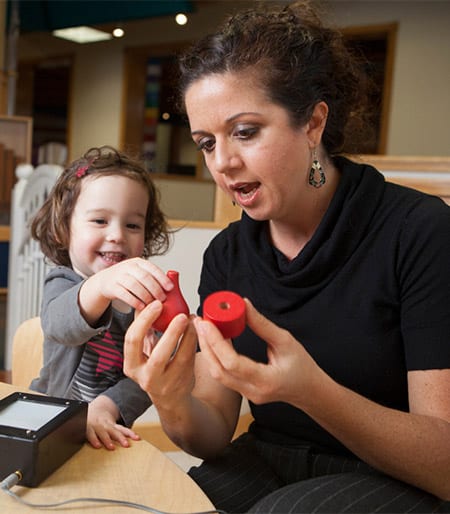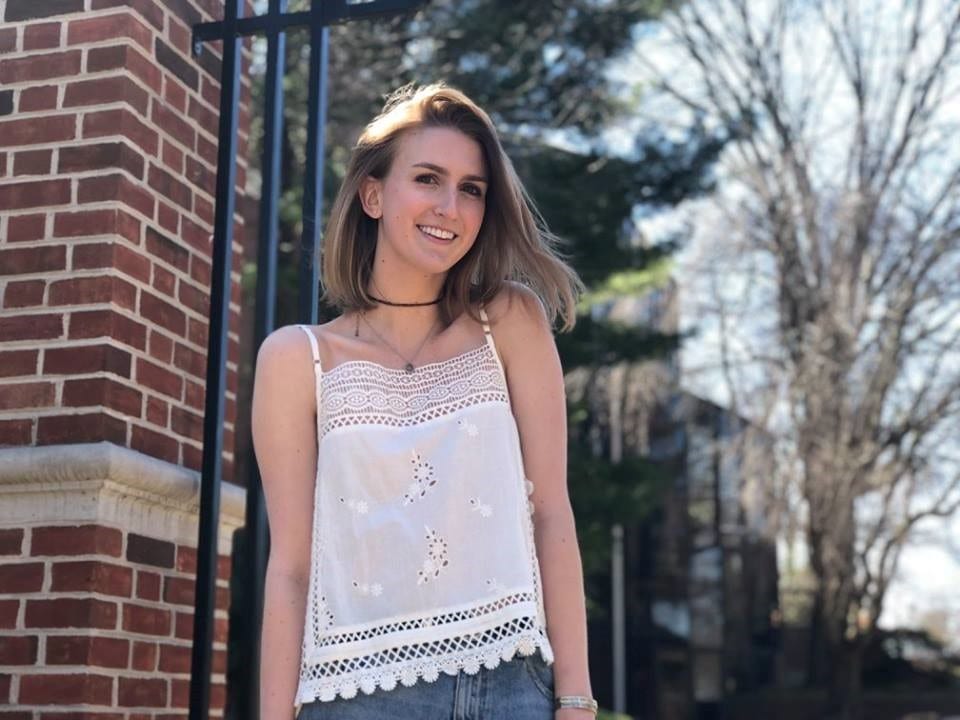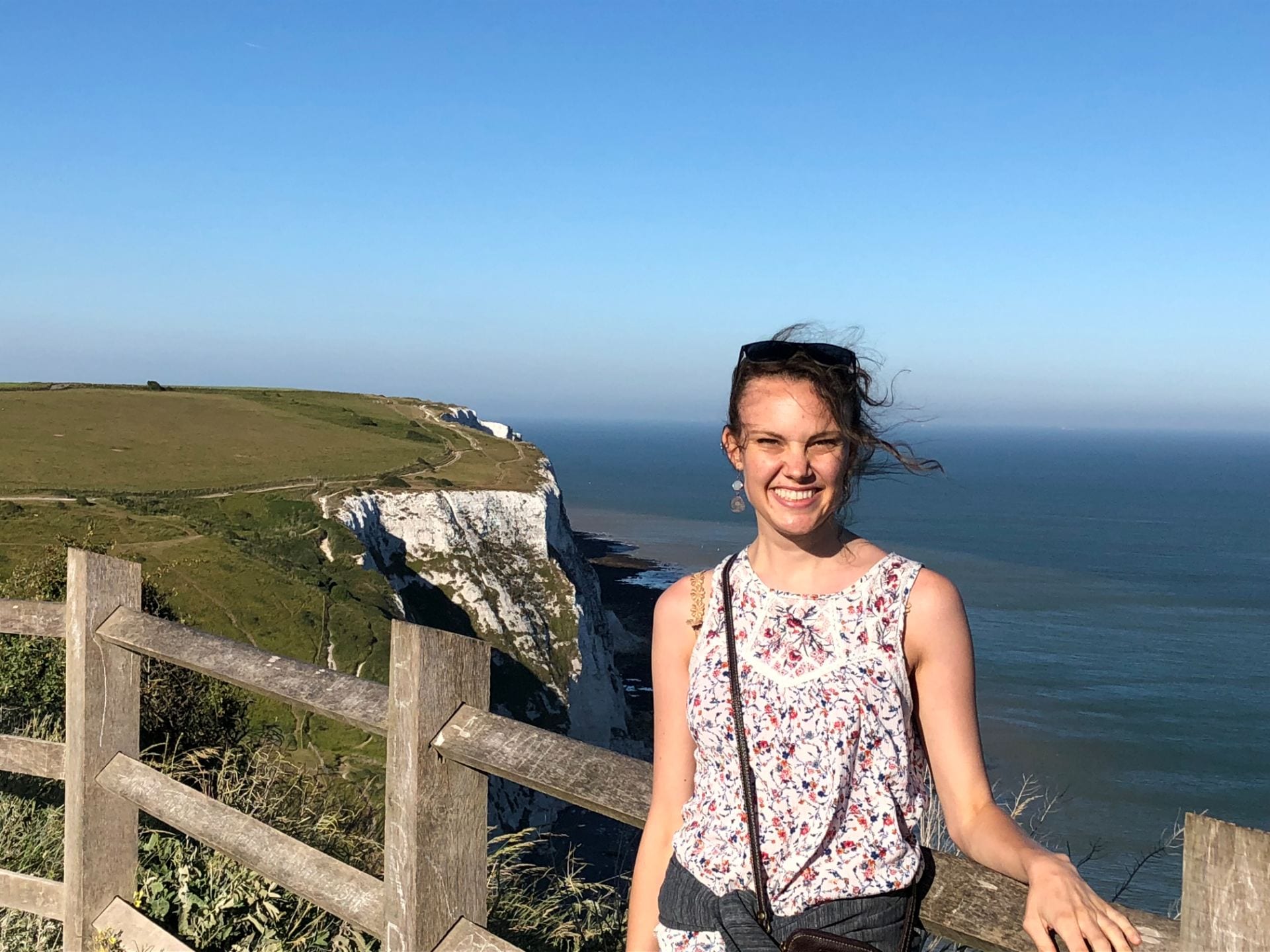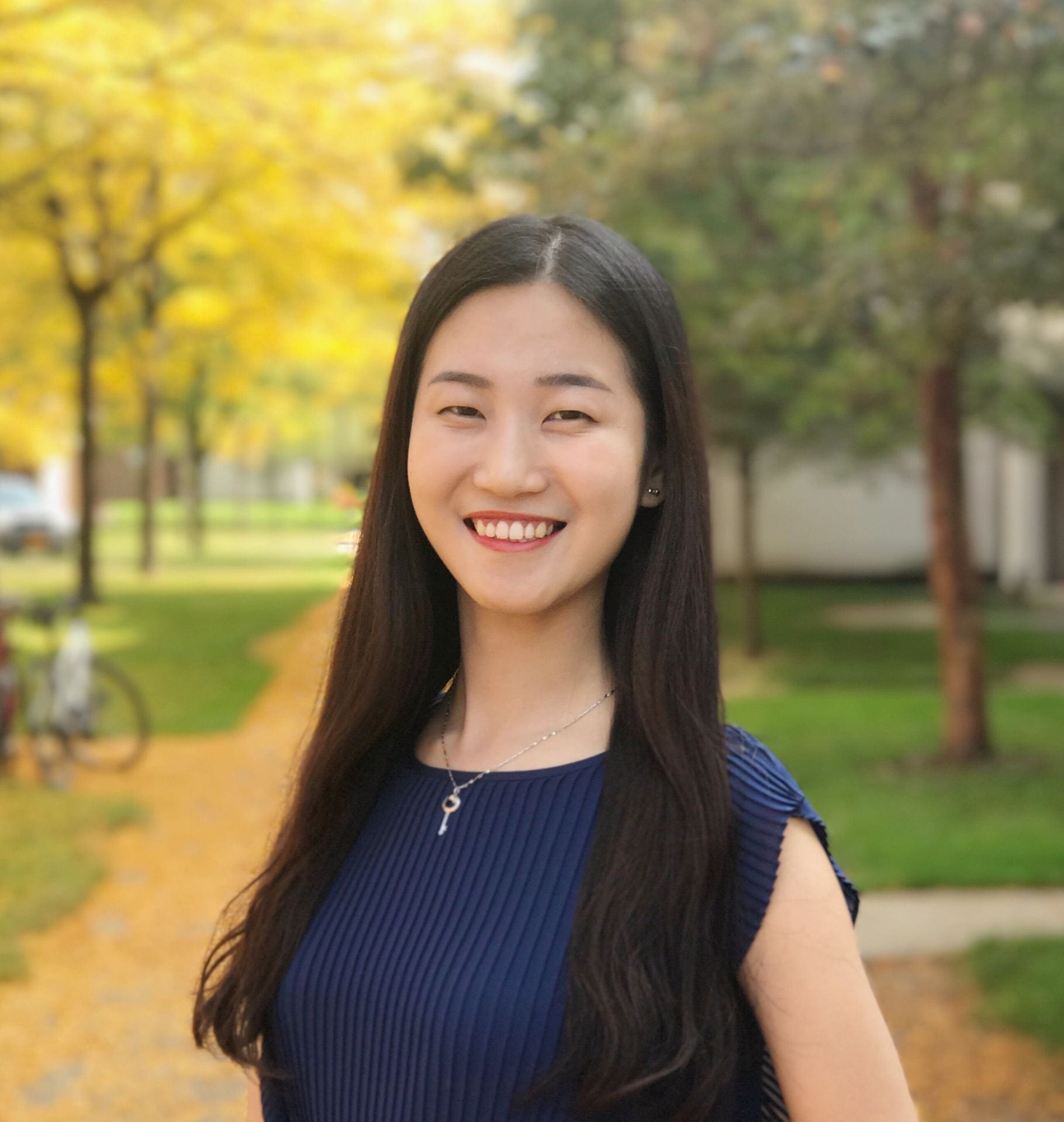
Tamar Kushnir is Director of the Early Childhood Cognition Laboratory in the Department of Human Development. Dr. Kushnir's research examines mechanisms of learning in young children, with a focus on social learning. She continues to explore the role that children's developing knowledge - in particular their social knowledge - plays in learning, a question with implications for the study of cognitive development as well as for early childhood education. Three of her graduate students--Teresa Flanagan, Alyssa Varhol, and Alice Xin Zhao--reflect on what led them to work with Dr. Kushnir and enroll in the Department of Human Development Graduate Program.
TERESA FLANAGAN

Can you tell me a little about your background and why you came to the Human Development program at Cornell?
Before graduate school, I attended Franklin & Marshall College for my undergraduate career. There I studied Scientific and Philosophical Studies of the Mind with a focus in Cognitive Science and was the lab manager of the three developmental psychology labs. I came to the Human Development program at Cornell because I admired the interdisciplinary mindset, something I am incredibly passionate about. I knew that this program would provide me with opportunities to learn and conduct research from multiple academic perspectives.
What research projects have you been involved with during your time here at Cornell?
I have been working on a few different projects. I am currently analyzing and overseeing a study that addresses the relationship between children’s free will beliefs and ability to imagine different possibilities. I am also preparing for a study that addresses the influence of culture on children’s understanding of other’s preferences. The last study I am working on addresses children’s free will beliefs and trust of humanoid robots after playing a collaborative game with one.
When you are not doing research or teaching, what do you like to do?
Outside of academia, I am the secretary for Cornell’s Graduate Women in Science [GWIS], an organization that aims to supporting marginalized identities in scientific fields (GWIS is a national organization that was founded in 1921 by women graduate students at Cornell--Ed.). I also love acting and comedy and so I have been rehearsing with an improv comedy group based in downtown Ithaca. Outside of all of that, I love doing yoga, going on hikes, and hanging out with friends!
ALYSSA VARHOL
Can you tell me a little about your background and why you came to the Human Development program at Cornell?

I met my now-adviser, Tamar Kushnir, at the biennial conference for the Cognitive Development Society last year. She was one of the first academics who didn’t flinch after hearing how many topics I wanted to incorporate into my research. Instead, she enthusiastically supported (and matched!) the breadth of my interests and encouraged me to apply for the Human Development PhD here. At the time, I was a lab manager for Melissa Koenig’s and Dan Berry’s labs at the University of MN’s Institute of Child Development, and before that, I earned undergraduate degrees in Psychology and English in Atlanta, GA and a MSc in Psych Research Methods in Sheffield, UK, (Alyssa received a Fulbright Award to study at the University of Sheffield--Ed.) and I had spent those 8 years of trying to find a way to integrate all of my diverse interests (including language, social cognition, individual differences, learning, parent-child dynamics, social norms, creativity, etc.) into a reasonable research program. Now, after my first semester, I can’t imagine a better place to begin establishing that research program in the integrated topic that, with Professor Kushnir’s guidance, I have finally chosen: the development of social learning across different contexts.
What research projects have you been involved with during your time here at Cornell?
I am interested in the ways children learn anything from words to social norms from other people early in life and how that might vary across individual differences (e.g., in cognitive and social skills or in parenting style ) and group differences (e.g., culture or socioeconomic status). I have been working on different stages of 3 projects related to this topic. I have primarily been working on a study of preschoolers’ learning from adults who demonstrate different knowledge states-- specifically, their willingness to learn the names and functions of unfamiliar objects from an adult who previously admitted she did not know the name of a familiar object like a cup-- to explore how children begin to evaluate people as sources of information. Professor Kushnir, Tess Flanagan, and I have also been preparing to begin an NSF funded study exploring how children learn to evaluate people’s behavior as social norms versus personal preferences across two cultures, but we will really get moving on that project in early 2019.
When you are not doing research or teaching, what do you like to do?
I feel incredibly fortunate that my cohort of 1st year grad students is very social, so we spend a lot of time doing things together outside of our working hours, like having reading groups about topics of mutual interest, watching the series Dark, and going bowling. My favorite of our activities is always our hiking trips to Tremen, Taughannock, and Buttermilk-- it’s unbelievable how many beautiful places are nearby! I also love anything that has to do with animals, especially dogs, so I help out my neighbors with their golden retriever puppy every week, which is delightful.
ALICE XIN ZHAO
Can you tell me a little about your background and why you came to the HumanDevelopment program at Cornell?

Before coming to HD, I did my undergrad in Psychology at Tsinghua University in Beijing, China (Tsinghua University is one of China's C9 League elite universities with a long history of international partnerships--Ed.). During my undergrad study, I was fortunate to work as a research assistant remotely for two cross-cultural projects on children’s causal reasoning and free will beliefs led by Alison Gopnik’s lab at UC Berkeley. I thus found my research interest in children’s early social cognitive development and applied to work with Tamar Kushnir (who is an expert in the area I’m interested in).
What research projects have you been involved with during your time here at Cornell?
During my time at Cornell, I’ve been working on a series of projects on children’s beliefs about choices, and their implications on children’s behavioral regulation and social evaluations. Some questions my studies have tried to answer include: 1) What do children perceive to be choices in light of various constraints (e.g. social and moral norms, physical constraints)? 2) How these beliefs relate to children’s self-control experience? 3) How do children evaluate someone who overcomes temptations to fulfill social and moral obligations? Do they understand the virtue of self-control?
When you are not doing research or teaching, what do you like to do?
In my free time (I try to have some…), I enjoy reading, playing board games, skiing, shopping and baking.

